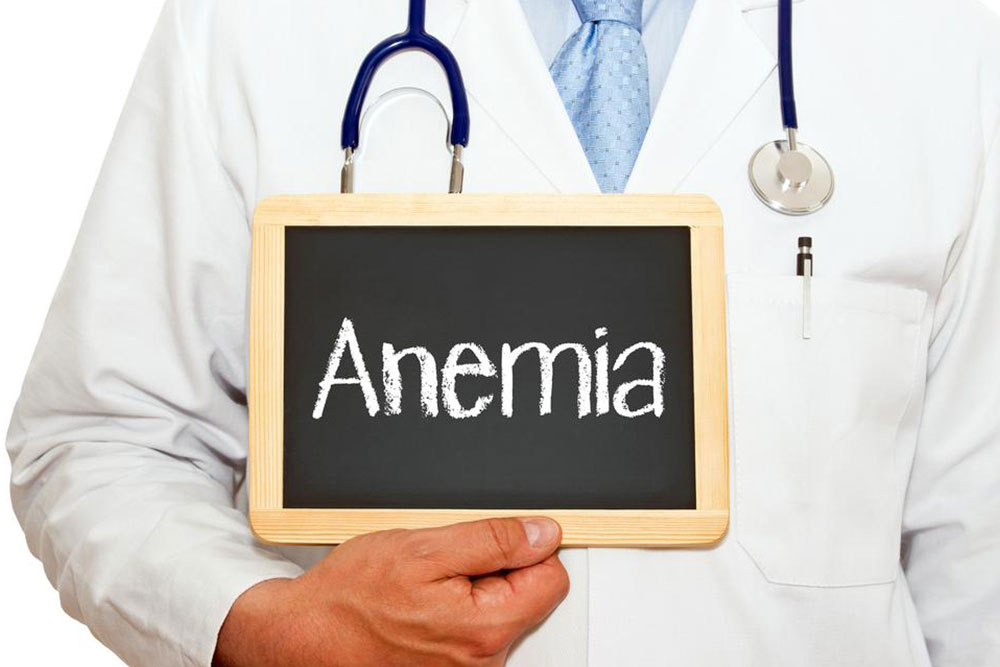Anemia – Causes and Symptoms
Iron deficiency or anemia is one of the most common forms of anemia and affects many people. It is the result of an inadequate amount of healthy red blood cells in the body. Red blood cells carry oxygen to the tissues in the body and are vital to the healthy functioning of the body as well. As the name suggests, a deficiency in iron leads to the onset of the disease.

Symptoms of iron deficiency or anemia
The onset of the disease is so mild that it generally goes unnoticed. The signs and symptoms of the disease gather pace once the deficiency of iron starts having a telling impact on the body. The signs and symptoms of iron deficiency or anemia include the following:
- Pale skin
- Weakness
- Extreme fatigue
- Chest pain
- Fast heartbeat
- Shortness of breath
- Dizziness, headaches, or light-headedness
- Cold hands and feet
- A poor appetite
- Unusual cravings for substances like starch, dirt, and ice
- Brittle nails
If you end up suffering from these symptoms, it suggests the likelihood of iron deficiency or anemia. The worst you can do at this stage is do a self-diagnosis and find a treatment for yourself. While it seems simple to take iron supplements or drastically change your diet to incorporate more iron, overloading the body with iron can be extremely dangerous as well. It can lead to several complications and liver damage. Instead, consult a doctor and get a treatment plan sorted out to rid you of the iron deficiency.
Causes of iron deficiency or anemia
The onset of the disease is the result of a lack of healthy red blood cells. When your body does not have enough iron to produce hemoglobin, a substance which gives red blood cells their red coloration, the red blood cells are unable to carry oxygenated blood to the tissues. This leads to iron deficiency or anemia. It may be because of a lack of or no iron in your diet or other reasons as well. Here are a few causes of the disease:
- Blood loss – If you lose blood, you would lose some iron as well. This is because the blood contains iron within the red blood cells. Women experience blood loss during their monthly cycle. Heavy blood loss may result in iron deficiency or anemia. A peptic ulcer, colon polyp, hiatal hernia, or colorectal cancer may lead to the disease as well due to chronic blood loss within the body.
- A lack of iron in your diet – A lack of iron in your diet may result in iron deficiency or anemia and it is one of the most common causes of the disease. If you do not consume enough iron over time, the body becomes deficient in iron. Try to incorporate meat, eggs, and leafy vegetables into your diet to have a better intake of iron. Infants and children need proper doses of iron in their diet for growth. A lack of it may slow down their growth rate.
- Pregnancy – Pregnant women may suffer from this disease. They have an increased blood volume and without proper iron supplementation, the amount of iron in the body may not suffice the required need. The growing fetus needs its fair share of iron for hemoglobin generation as well.
- Inability to absorb iron – Iron is absorbed into the bloodstream through the small intestine. Celiac disease affects the ability of the small intestine to absorb nutrients from digested food. Diseases like these affect the ability of the body to absorb iron and may lead to iron deficiency.
Most cases of iron deficiency or anemia are mild and do not lead to any complications. However, if the condition is left untreated, it may lead to several unwanted problems like a rapid or irregular heartbeat, complications in pregnancy, and stunted growth in children. The disease can be prevented by maintaining an iron-rich diet and by taking food items rich in vitamin C. If you are suffering from the disease, consult a doctor as taking too much iron can be harmful as well and can lead to other complications.